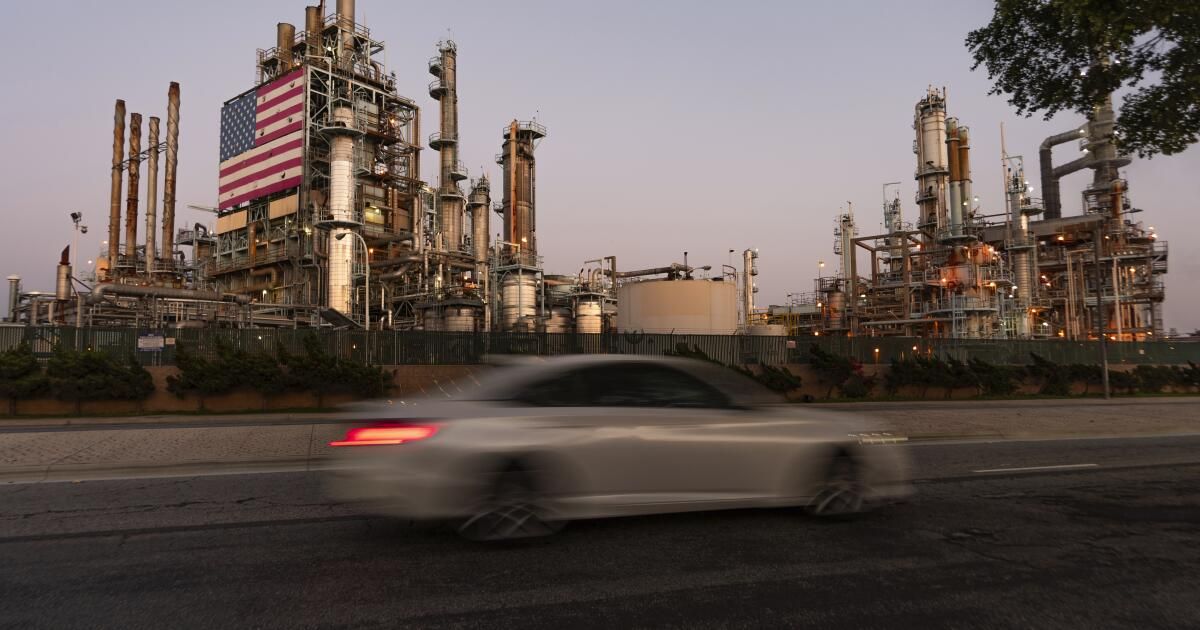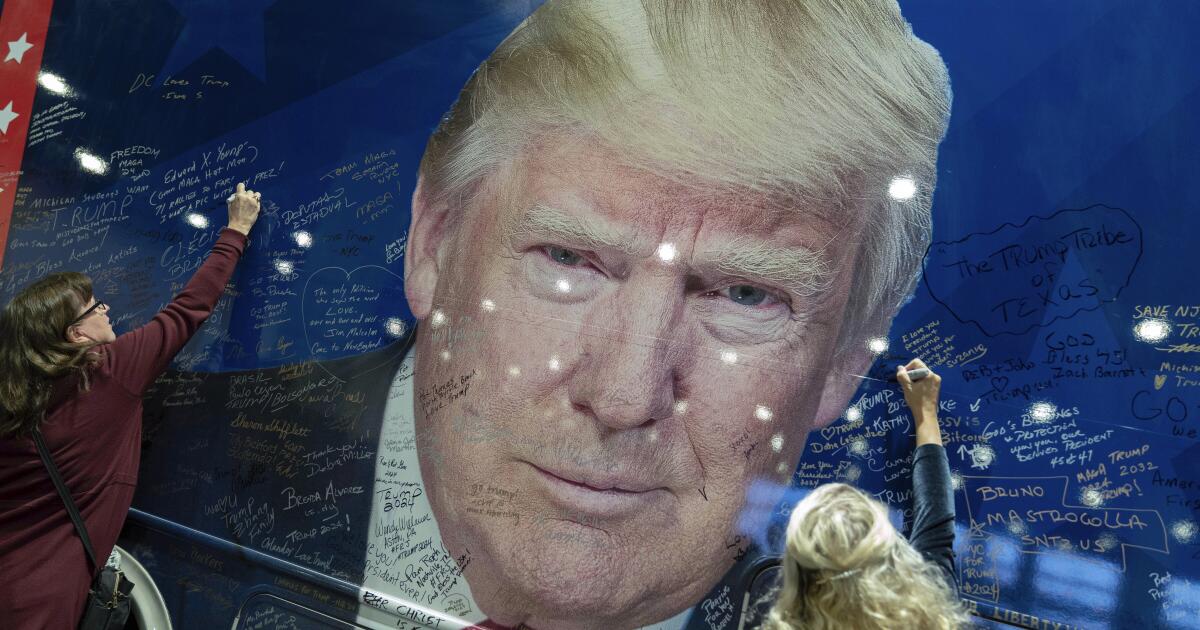Oil companies are worried that federal incentives and the growing popularity of electric vehicles will hurt their profits and threaten their stranglehold on energy consumption. Former President Trump and other Republican politicians want to exploit the concerns of consumers and auto workers about the transition to zero-emission vehicles to help them win in November.
That’s why both the fossil fuel industry and the Republican Party are spreading the same lie that the Biden administration is banning gas-powered cars. This self-serving effort to mislead voters is shameful, even to those whose dissemination of misinformation has become sadly expected.
At last week’s Republican National Convention, Trump said, “I will end the electric vehicle mandate on day one.”
There is no such mandate, but the facts are no obstacle for the former president and his supporters. Nor have they stopped the fossil fuel industry from spending millions of dollars in recent months on ads that have aired in Michigan, Pennsylvania, Nevada, Arizona, Ohio, Montana, Wisconsin and other key battleground states, repeating the lie.
An ad campaign funded by the lobbying group American Fuel and Petrochemical Manufacturers claims the Biden administration is “rushing to ban new gasoline-powered cars” and “forcing drivers to buy an electric vehicle.” This is not true.
Here are the facts. Earlier this year, the Environmental Protection Agency finalized new greenhouse gas emissions rules that will require automakers to increase sales of new zero-emission cars and light trucks from about 7% of vehicles sold last year to more than 67% by 2032. These rules are projected to provide huge health benefits by reducing air pollution and saving consumers billions in the form of lower fuel and maintenance costs.
Unlike California, which is phasing out gasoline-powered car sales by 2035, the U.S. does not have a federal rule (nor is one under consideration) banning gasoline-powered cars. In fact, the rules the EPA adopted in March were a watered-down version of an earlier proposal, with loopholes that allow automakers to sell more gasoline vehicles in exchange for longer election-year concessions to the auto industry and unions, which fear the transition to electric vehicles will take jobs away from union members.
And just like with the Republican-fueled uproar As for the nonexistent ban on gas stoves last year, no federal agent is coming to confiscate your Toyota Camry, Honda CR-V or Ford F-150 because they burn gasoline instead of electrons. It's just another easily disproven mischaracterization meant to stoke anger and confusion among voters.
It is no surprise that dishonesty in the service of a pro-fossil fuel agenda is coming from the oil industry or from Trump, who during his presidency attempted to demolish all manner of environmental protections to benefit polluting industries. Once again, he is proving to be a receptive vehicle for their message.
Republican politicians are already the largest recipients of campaign contributions from the oil and gas industry, and Trump has received more cash donations than any other federal candidate during this election cycle. But in a surprisingly transactional suggestion, earlier this year He told oil executives at his Mar-a-Lago Club who would have to raise $1 billion for their White House campaign in exchange for reversing Biden's policies on electric vehicles, renewable energy and other environmental actions opposed by the fossil fuel industry.
Voters should not believe for a second that Big Oil and the Republican Party have anything other than their own interests in mind. Exxon Mobil Corp., Chevron and other big companies don't want Americans to have the independence that comes with the shift to clean, renewable energy. And Republicans want to scare voters into their side because they don't believe they can win on the merits.
The scaremongering campaign is especially exploitative because it is aimed at Midwestern auto manufacturing centers, where workers are understandably worried about their future as the global vehicle market shifts to battery-electric technology.
But instead of offering constructive solutions to help the U.S. auto industry become globally competitive — such as historic levels of investment in domestic vehicle and battery manufacturing under Biden’s Inflation Reduction Act — Republicans are simply promising to turn back the clock and let auto companies produce as many gas-guzzling vehicles as they want.
Americans should see this lie for what it is: an effort by some of the world's most powerful corporations to sow confusion and prey on our anxieties in the pursuit of power and profit.












